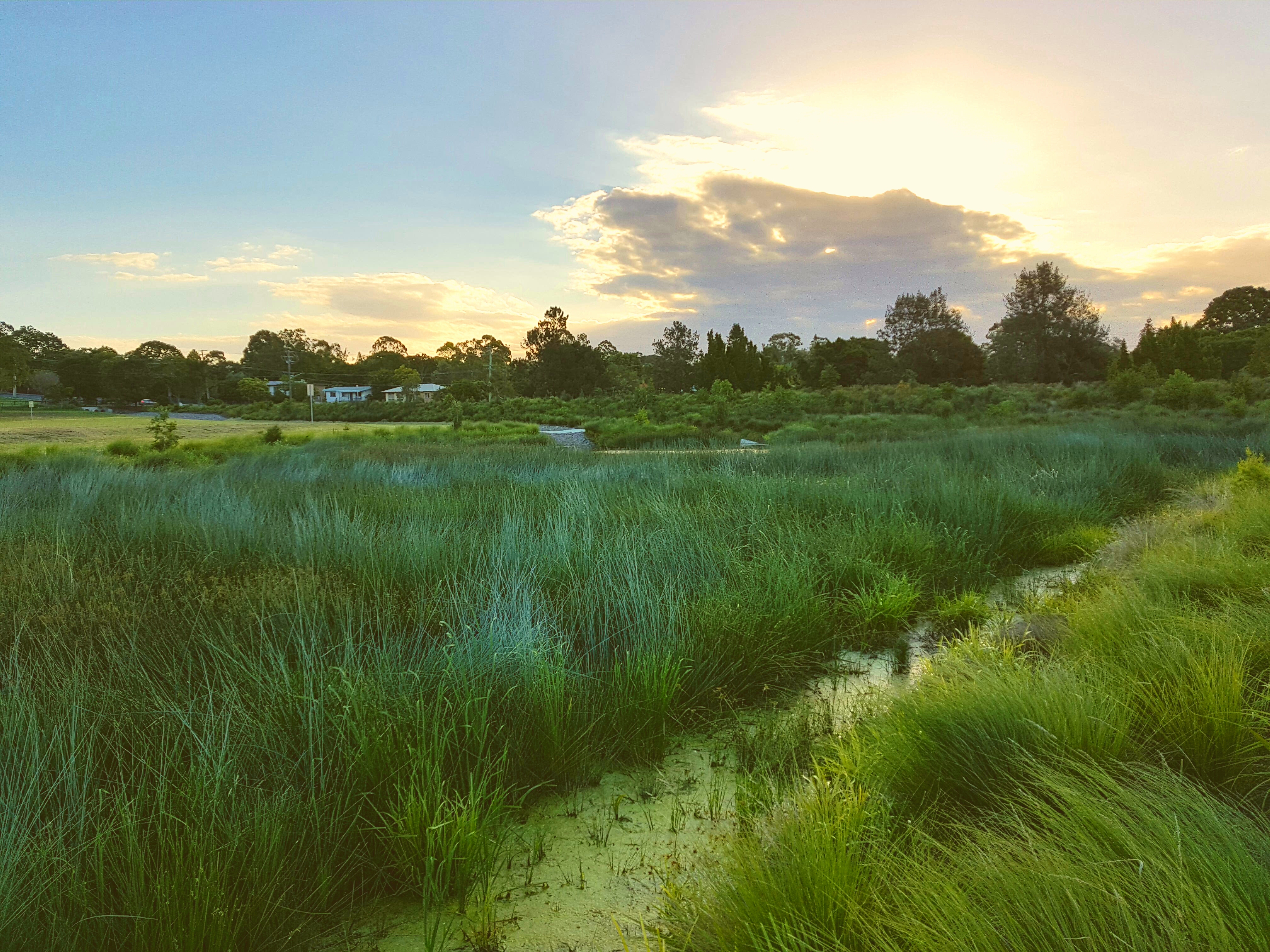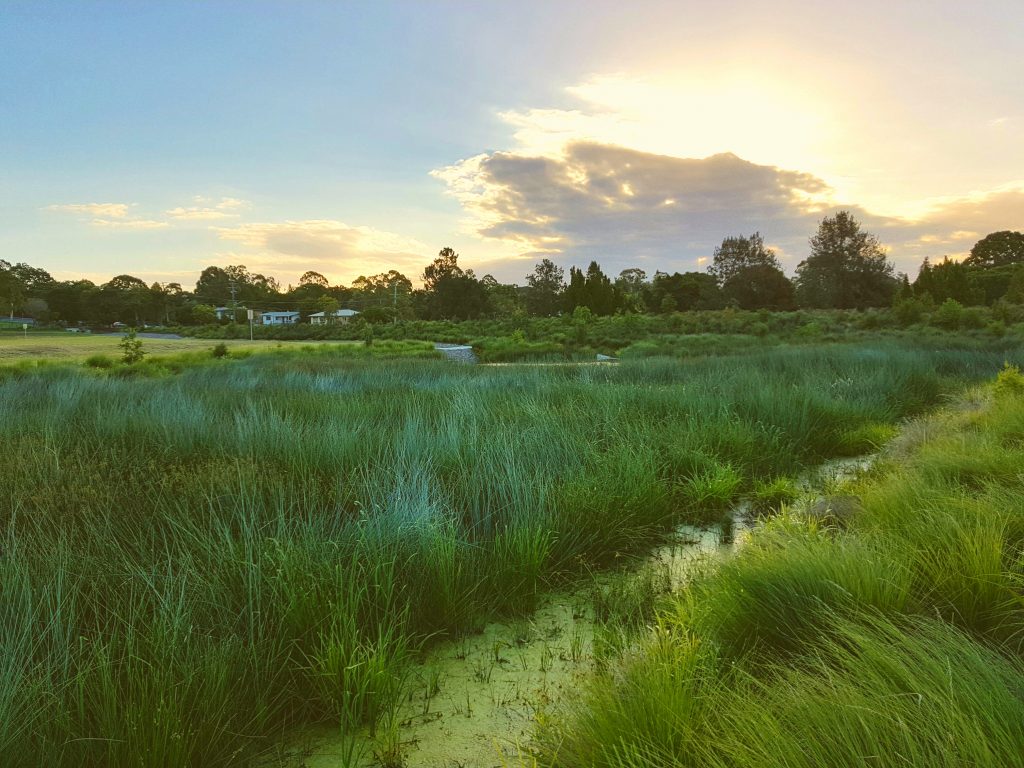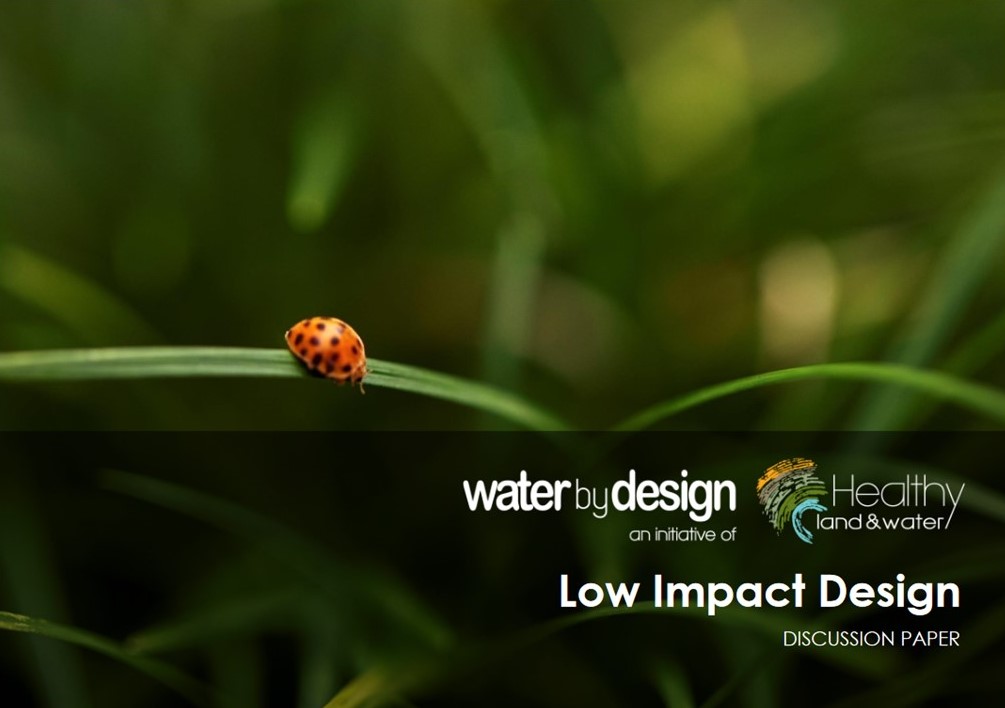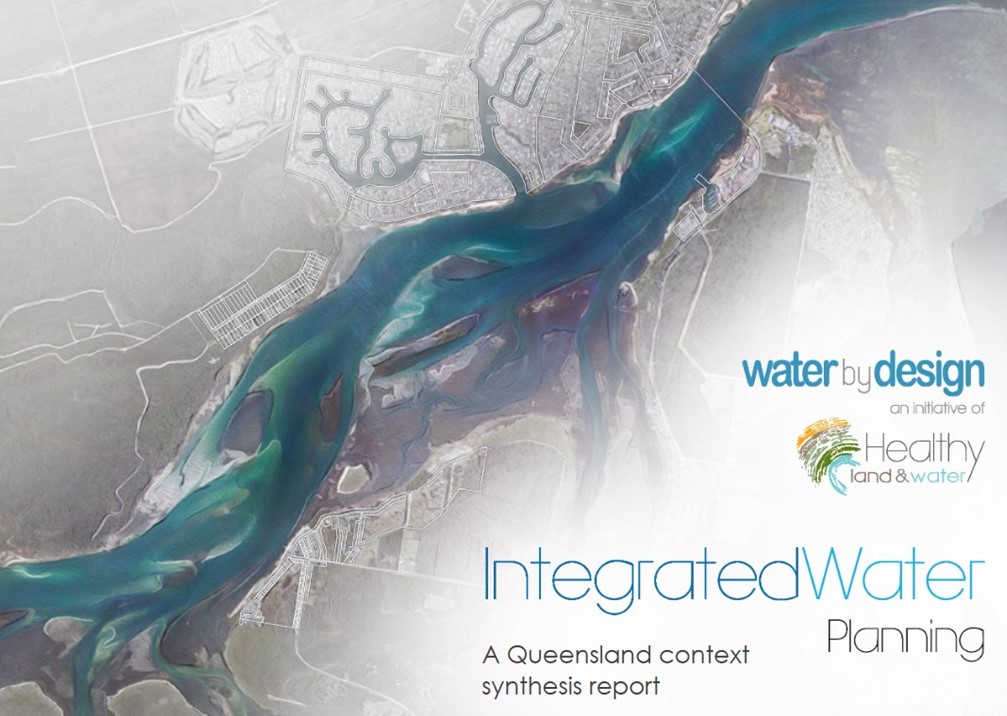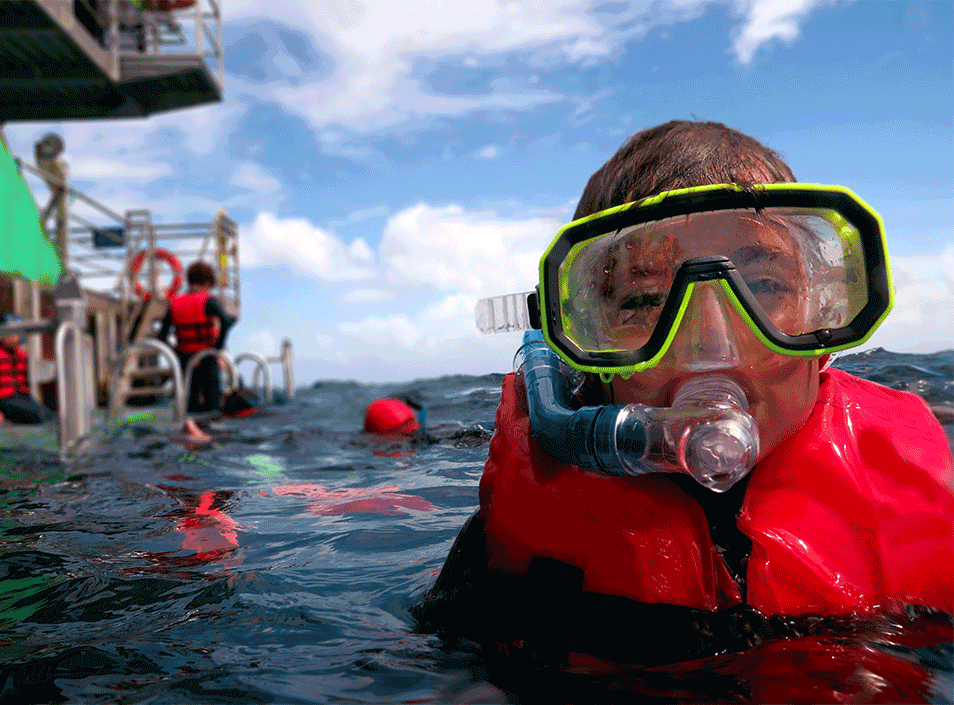Ipswich City Council were experiencing issues with flooding downstream of the Redbank Plains Recreational Reserve. To solve the issue, a combined stormwater detention (90,000m3) and stormwater harvesting wetland (5300m2) was constructed within the recreational reserve. This infrastructure converted the flooding threat into an alternative irrigation supply (up to 44ML/year) for the local sports fields, which potentially saves ratepayer funds.
The layout of the detention basin and wetland allowed for the creation of a new flat kick and throw area. It also allowed for irrigation of key playing fields, without which playing surfaces can become hot, dry, hard and virtually unplayable during extended periods with no rain.
The project included a number of vegetated swales as well as a heavily vegetated section of the harvesting pond which helps to filter stormwater runoff before it is discharged to the creek. The project was partially funded through stormwater offsets from a nearby commercial development.
The wetland has become a feature within the recreational reserve with dog walkers stopping to take pictures of birdlife from a nearby path.
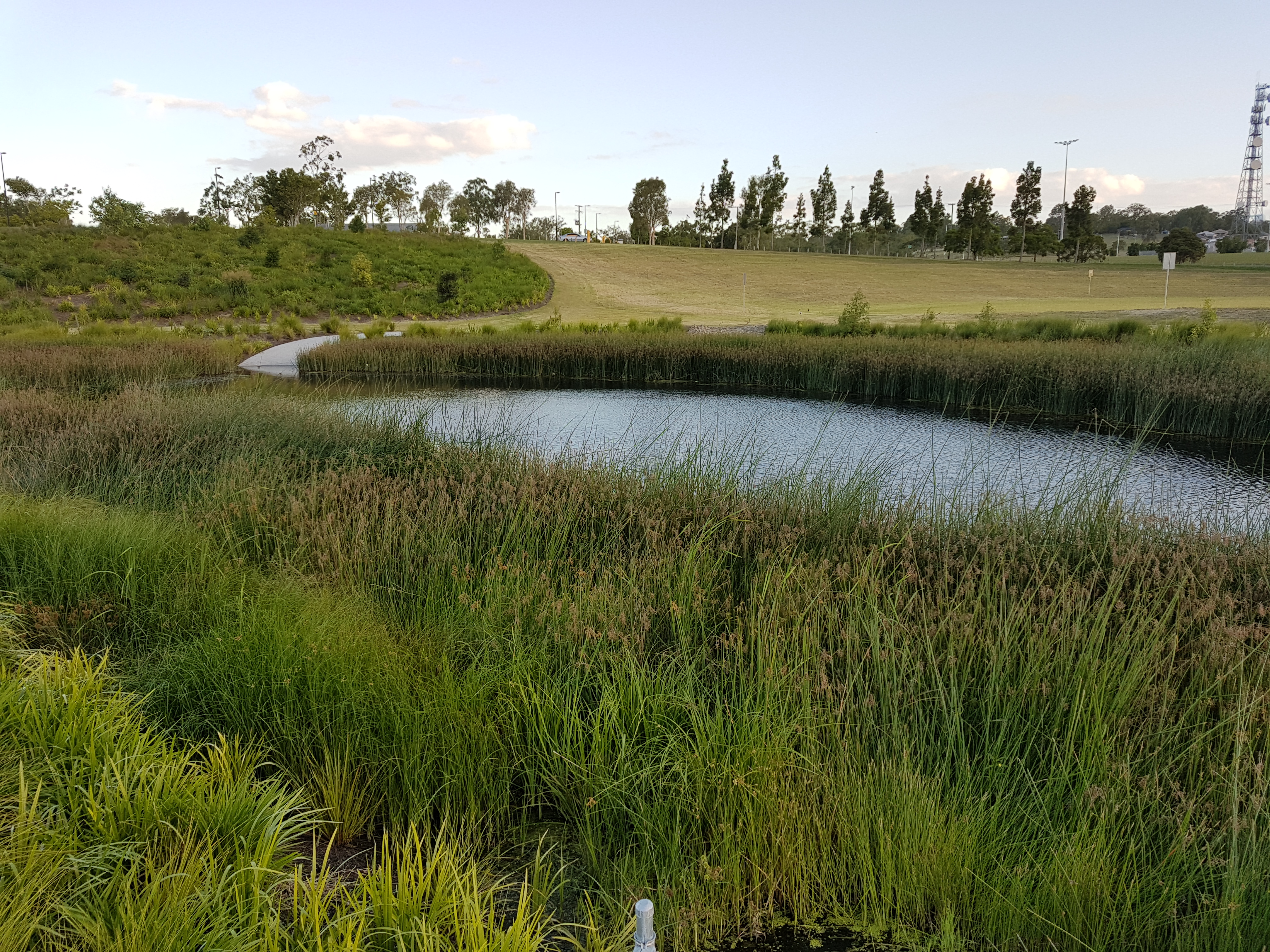
Lessons Learned
The wetland suffered from the nesting of a family of purple swamp hen. This species can severely impact on emerging macrophytes. It is hopeful that the macrophyte will be able to re-establish and a balance can be found.
Further investment in the irrigation system is required before harvested water can be used around the full recreational reserve.
Significant gross pollutants and debris is getting into the wetland which attracts ibis, reduces aesthetics and accumulates sediment. In hindsight inclusion of a GPT or sediment trap may have been helpful.

Project Benefits
The project at its heart is a signature example of sustainable infrastructure and development. The project truly covers the three pillars of sustainability:
Environment
- Water quality pollutant reductions, improving the health of neighbouring waterways
- Reduction in the demand for potable water
- Introducing ecosystems into previously uninhabited areas (native fish and crayfish have already established)
- By reusing spoil and using scrapers, avoided13,487 five-kilometre round trips for earthworks and thus also the related air pollution
- Education regarding our waterways by connecting people to the wetland area through pathways and signage
Economic
- A potential $160,000 annual reduction in potable water expense and a predicted $14 million saving over the design life of the asset (allowing for various capital, maintenance and life cycle costs)
- Significant savings by reusing 100,000m3 of spoil and using scrapers. With the reduction in haulage, dump fees and reduced import soil for the sports fields it is estimated $1.5 million has been saved in this exercise
- Increasing the value of neighbouring properties with large open space areas integrated into attractive open water bodies
- Savings by delivering both this project and the road upgrade jointly
- Estimated $350,000 saving on reduction in the number and size of road drainage required due to the diversion swale installed on the flood mitigation project
Social
- A new sports field constructed within the basin increasing the active lifestyles and health of Ipswich community
- Integrating the wetland into regional bikeways and footpaths
- Ensuring sporting fields will remain watered during dry times thus further encouraging sport participation
- Providing a place of appeal and beauty while educating the public on integrated water management issues
- Reducing flood damages and social impact of future flood events
- Increasing the reliance of the area as a whole
Fundamental to the success of this project was a high level of collaboration and consultation undertaken throughout the entire life of the project life.
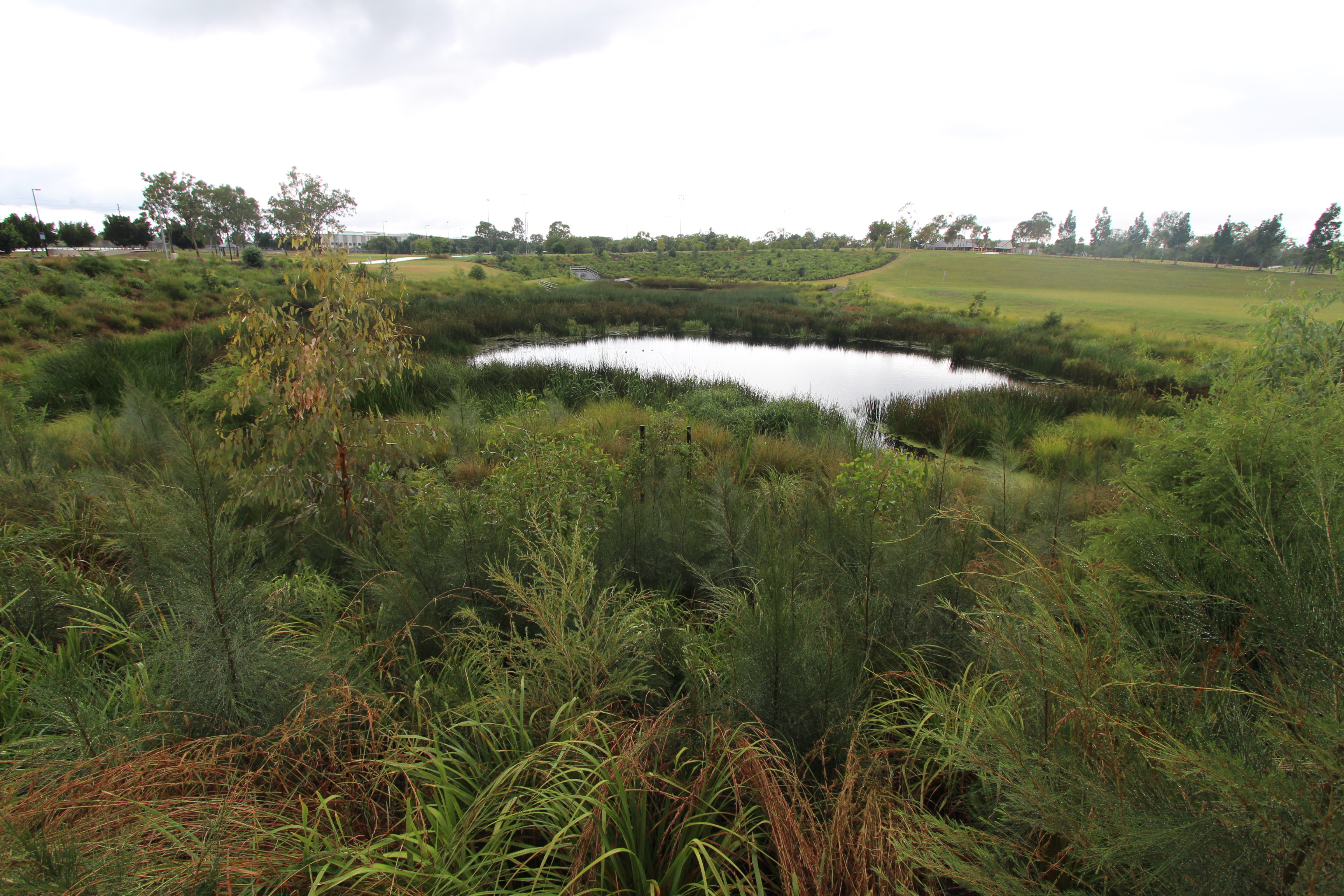
Follow link for the Living Waterways scorecard
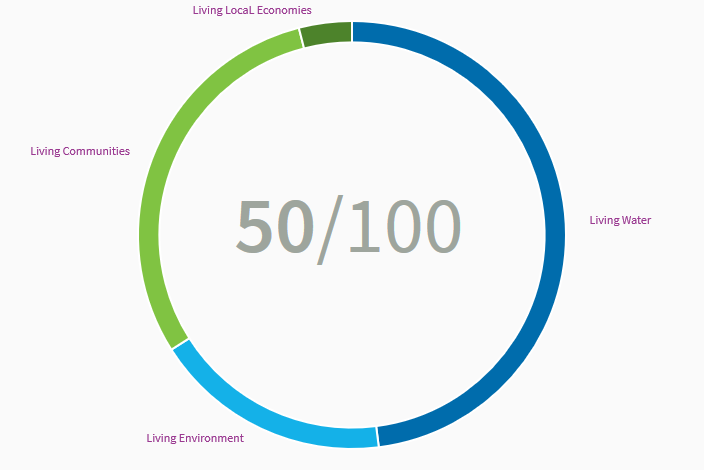
Note: scores above 40 represent exemplar projects
Photos and information for this case study were kindly supplied by Ipswich City Council, Synergy Solutions and BMTWBM.
